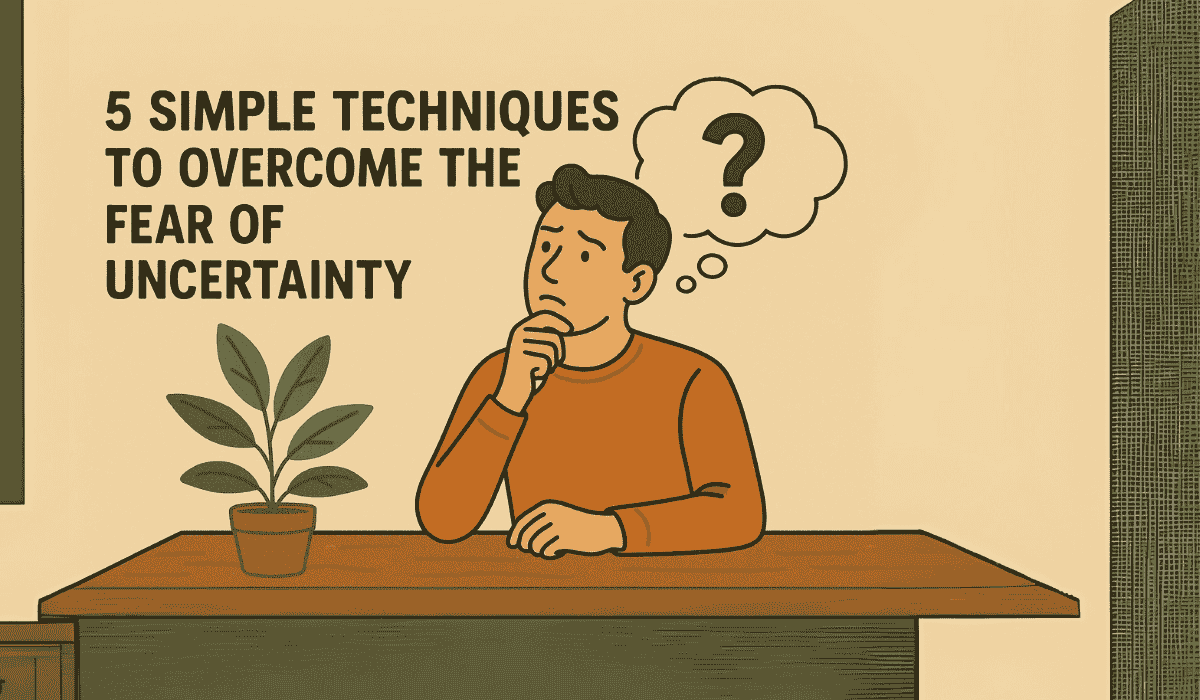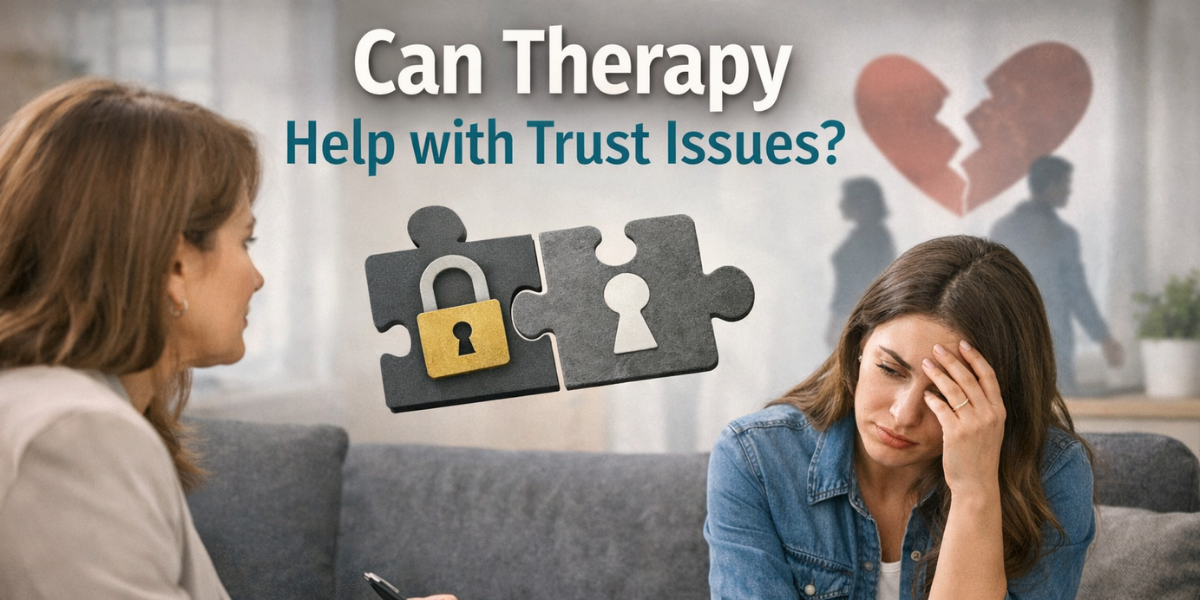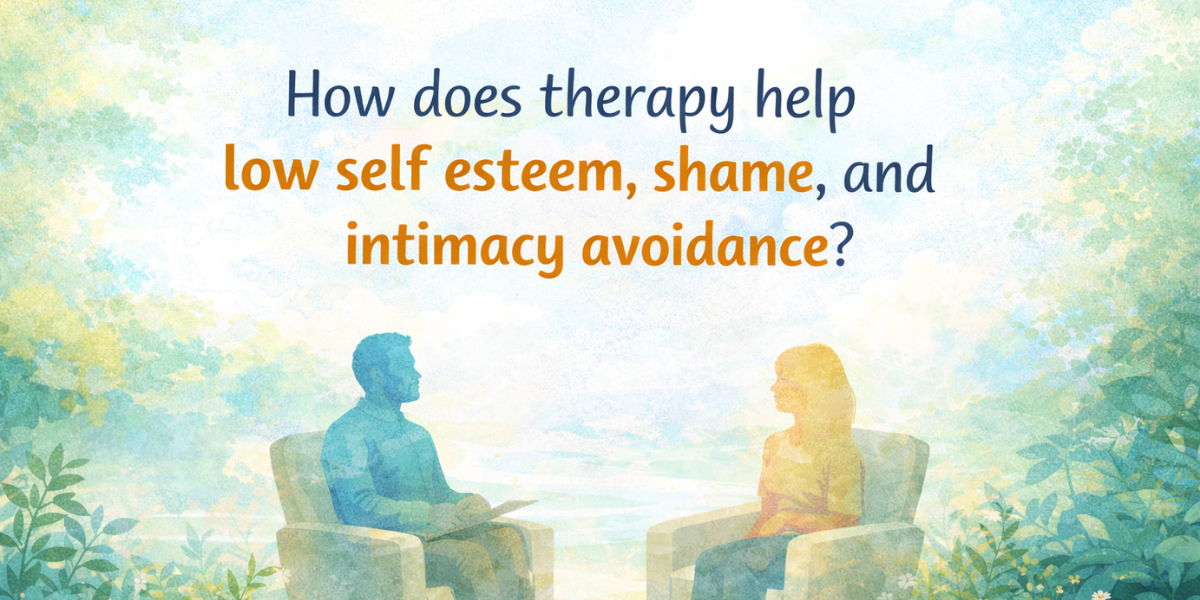Let’s face it—uncertainty is scary.
Whether you’re waiting to hear back after a job interview, navigating a health scare, or just wondering what the next year holds, the unknown can feel overwhelming.
Many people feel frozen in the face of change or unpredictability. You’re not alone.
In fact, the fear of uncertainty is something deeply wired into our brains. We crave control. We like to know what’s next. But here’s the truth: life doesn’t always give us a script.
That’s why so many people turn to therapy for overcoming fear and uncertainty.
It’s not about eliminating the unknown—because that’s impossible. It’s about learning how to live fully even when the future feels foggy.
Here are 5 simple techniques that can help you start moving forward—even when the road ahead is unclear.
1. Accept That Uncertainty Is a Part of Life
We know. Easier said than done.
But think about this: has everything in your life ever gone exactly according to plan? Probably not. And yet—here you are. Still standing.
“Uncertainty is the only certainty there is, and knowing how to live with insecurity is the only security.” – John Allen Paulos
Trying to control everything is like trying to hold water in your hands—it just slips through your fingers. The more we resist uncertainty, the more power it has over us.
Instead, practice acceptance. Tell yourself, “It’s okay not to know everything right now.” Repeat it when your thoughts spiral. It might feel weird at first, but over time, it creates a new mental habit—one that doesn’t immediately panic when things feel out of control.
Try This:
Each morning, say aloud:
“I allow space for the unknown today.”
Let it be your grounding statement.
2. Focus on What You Can Control
Here’s the trick: control the controllables.
You can’t control the economy, someone else’s feelings, or the weather. But you can control your thoughts, your actions, and your reactions.
When things feel chaotic, narrow your focus. Ask yourself:
“What’s one thing I can do right now that’s within my control?”
Maybe that’s making your bed. Calling a friend. Going for a 10-minute walk. Journaling. Small actions can be grounding—they remind you that you still have agency even when big things are uncertain.
“When we feel powerless, regaining even a little control can anchor us.” – Therapist insight from anxiety coaching clients
This mindset shift is one that’s often taught in therapy for overcoming fear and uncertainty—because it works. It’s empowering and practical.
3. Name the Fear—Then Talk Back to It
Here’s a secret your anxious brain doesn’t want you to know:
It loses power when you talk to it.
When fear is left unnamed, it grows in the dark. But once you put it into words, it becomes less terrifying.
Try this:
- Ask yourself: “What exactly am I afraid of?”
- Then ask: “What’s the worst-case scenario?”
- Finally: “If that happened, how would I handle it?”
Often, your brain is predicting disaster—but when you map it out, you realize you could actually survive it. That’s where the fear starts to loosen its grip.
Journal Prompt:
_”I’m afraid that _______. If that happened, I could still ______.”
Talk to your fear like it’s a worried friend. “Hey, I know you’re scared, but I’ve handled hard things before.”
Many people use this tool during therapy for overcoming fear and uncertainty. It helps separate you from the fear—you are not your fear. You’re just experiencing it.
4. Practice Mindfulness—Stay in the “Now”
When we fear the unknown, our brains rush into the future. “What if this happens?” “What if I fail?” “What if I never figure it out?”
And suddenly, you’re miles away from the present.
That’s where mindfulness comes in. It gently pulls you back.
“Worrying does not take away tomorrow’s troubles—it takes away today’s peace.”
Mindfulness is about being here, now. Focusing on the breath. Feeling your feet on the ground. Listening to sounds around you. It’s not about stopping thoughts—it’s about not letting them carry you away.
Even a few minutes a day can make a huge difference.
Try apps like Calm or Insight Timer. Or just sit quietly, breathe deeply, and observe without judgment.
Therapists often include mindfulness as part of therapy for overcoming fear and uncertainty because it strengthens your brain’s ability to stay calm amid chaos.
5. Lean on Support—Don’t Go It Alone
Let’s bust a myth:
You don’t have to “figure it out” all by yourself.
Fear grows in isolation. But when we talk, share, and connect, fear starts to shrink.
Whether it’s a trusted friend, a support group, or a mental health professional—find your people. Let them in.
You’d be surprised how many people feel the same way you do but are afraid to admit it. Vulnerability creates connection.
And if your fear feels stuck, overwhelming, or affects your daily life—it’s time to consider therapy for overcoming fear and uncertainty. Therapists offer tools, insights, and a non-judgmental space to explore your thoughts. There’s real strength in reaching out.
“You don’t have to be fearless to move forward. You just have to be supported.” – Anonymous client testimony
Gentle Reminders When the Fear Creeps In:
- You’ve survived every uncertain moment up to now. You’re more resilient than you think.
- It’s okay to pause. Rest is not the same as giving up.
- You are not your thoughts.
- The future may be unknown—but that doesn’t mean it’s bad.
- Fear is normal. But it doesn’t have to drive the car.
Final Thoughts: You’re Braver Than You Know
The truth is, uncertainty never fully goes away. But your relationship with it can change.
With time, practice, and the right tools, you can start to live with more peace—even when you don’t have all the answers.
Whether you start journaling, try mindfulness, or reach out for therapy for overcoming fear and uncertainty, know this: you’re already taking the first step. Reading this means you care about your mental wellness—and that’s something to celebrate.
So take a deep breath.
Trust yourself a little more today.
And remember—you’ve got this.
If You’re Ready for Support…
Working with a professional can be life-changing. If the fear of uncertainty is holding you back, consider reaching out for therapy for overcoming fear and uncertainty. A licensed therapist can guide you toward clarity, resilience, and inner calm.
Don’t wait for the fear to disappear.
Move with it—and move forward.
FAQs
What is the fear of uncertainty, and why do I feel it so strongly?
The fear of uncertainty is the discomfort or anxiety that comes from not knowing what the future holds. It’s a natural human response—we’re wired to seek safety, routine, and control. When life feels unpredictable, our brain reacts with worry to “prepare” us. While normal, this fear can become overwhelming if left unaddressed.
Can therapy really help with the fear of the unknown?
Yes, absolutely. Therapy for overcoming fear and uncertainty provides practical tools to help you manage anxious thoughts, shift your mindset, and feel more grounded during life’s unpredictable moments. Therapists help you understand where your fear comes from and how to gently change your response to it.
What kind of therapy is best for overcoming fear and uncertainty?
Cognitive Behavioral Therapy (CBT) is one of the most effective approaches. It helps you identify and challenge negative thought patterns. Mindfulness-based therapies and Acceptance and Commitment Therapy (ACT) are also great options for learning how to live with uncertainty without feeling paralyzed by it.
How do I know if my fear of uncertainty is becoming a problem?
If your fear is interfering with daily life—like making decisions, sleeping, working, or maintaining relationships—it might be time to seek help. Feeling stuck, constantly worrying about “what ifs,” or avoiding opportunities due to fear are also signs it’s affecting your well-being.
Are there self-help techniques I can try before starting therapy?
Yes! Try mindfulness exercises, journaling your fears, focusing on what you can control, and practicing acceptance of the unknown. These strategies are often recommended in therapy for overcoming fear and uncertainty and can be powerful on their own too.
How long does it take to overcome the fear of uncertainty?
There’s no set timeline. Some people see improvements within a few weeks of focused effort or therapy, while others may take longer. Growth happens gradually—but with consistent practice and support, you’ll notice you feel calmer and more confident navigating the unknown.
What’s the difference between normal worry and fear of uncertainty?
Normal worry is temporary and usually tied to a specific event (like an exam or meeting). Fear of uncertainty tends to be broader—it can affect many areas of life and linger even when there’s no immediate threat. If you’re constantly seeking reassurance or avoiding decisions, it may be more than just worry.
Will avoiding uncertain situations make the fear go away?
No, avoiding uncertainty often makes the fear stronger. The more we avoid discomfort, the more our brain believes we can’t handle it. Facing uncertainty in small, manageable steps is key to building confidence. Therapy can guide you through this process safely.





